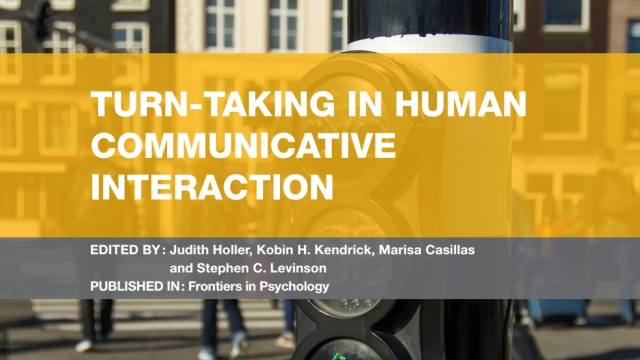
New open access book on turn-taking in human communicative interaction
Verbal communication is a fundamental aspect of knowledge transfer, but how much do you know about the complexities of human communicative interaction? How do people manage to have a conversation with such rapid speed and accuracy?
Researchers in the Language and Cognition department of the Max Planck Institute for Psycholinguistics have edited the freely accessible e-book Turn-taking in Human Communicative Interaction1 dedicated to the complex multitasking we perform while in conversation:
Across the globe, at this very moment, millions of people are doing the same thing: having a conversation. This most basic use of language is in fact a marvelous achievement. Consider this: the amount of time between turns when talking in conversation averages around a mere 200 milliseconds, yet psycholinguistic research has shown that speakers need at least 600 milliseconds to plan a single word, and far more time for a complex sentence. It follows that the next speaker in line cannot wait for the current turn to end to start planning a response.
The articles in the collection were published individually last year in the journal Frontiers in Psychology. Included are contributions from psycholinguists, developmental language researchers, conversation analysts, linguists, sign language researchers, phoneticians, corpus analysts, and comparative ethologists.
Reference:
- Holler, J., Kendrick, K, H., Casillas, M., Levinson, S. C., eds. (2016). Turn-Taking in Human Communicative Interaction. Lausanne: Frontiers Media. doi: 10.3389/978-2-88919-825-2 ↩
Also published on Medium.






